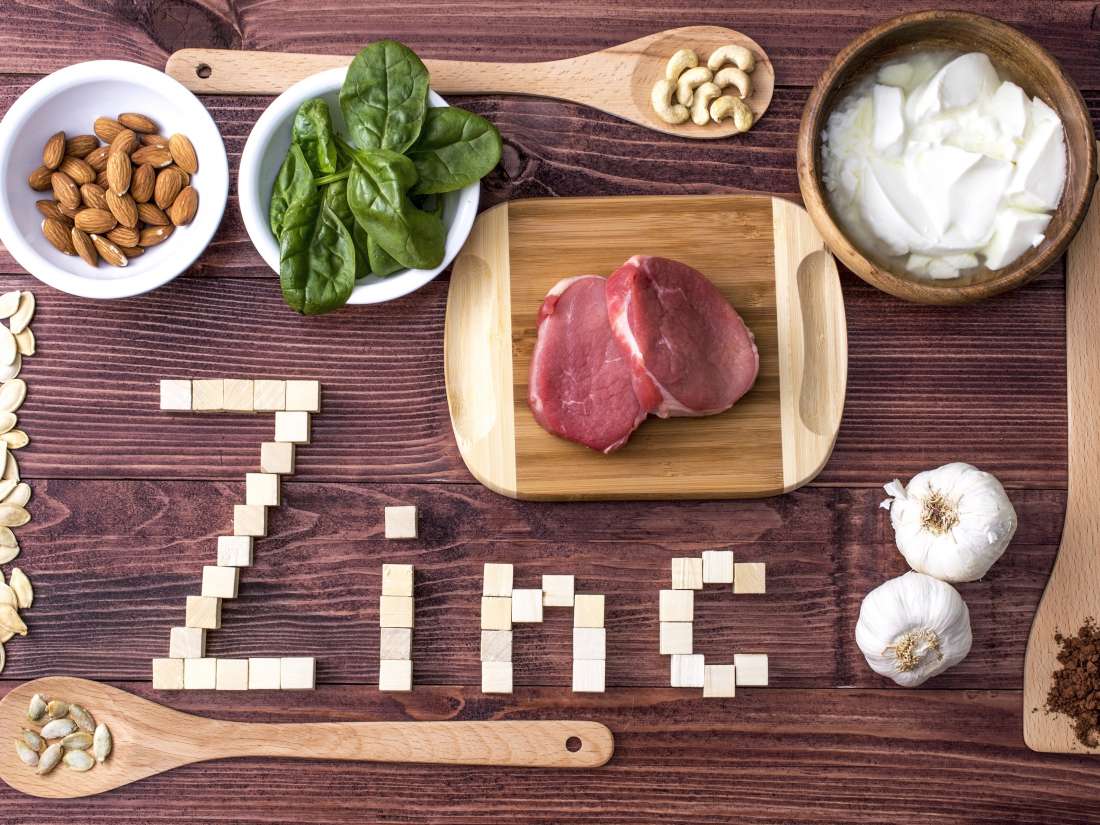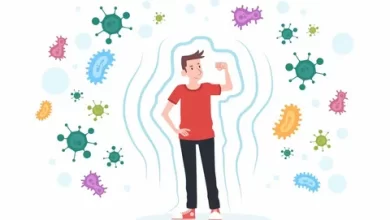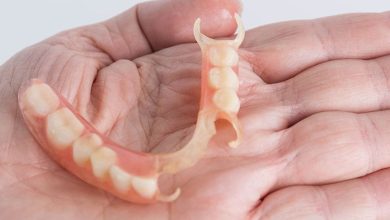8 SIGNS OF ZINC DEFICIENCY


Zinc deficiency is characterized by growth retardation, loss of appetite, and impaired immune function. In more severe cases, zinc deficiency causes hair loss, diarrhea, delayed sexual maturation, impotence, hypogonadism in males, and eye and skin.
Zinc is an important trace mineral, which is useful for the body in many ways. It is essential for cell division and aids normal growth and development during pregnancy, childhood and adolescence.
It also helps in DNA synthesis, the process of genetic expression, immune system functioning, protein synthesis and metabolizing carbohydrates to convert them into energy.
Table of Contents
Top 8 signs of zinc deficiency
1. Persistent Diarrhea
Zinc deficiency also contributes to an increased incidence and severity of diarrhea. It causes low immunity and alters the body’s immune response that probably contributes to increased susceptibility to infections that cause diarrhea, especially in children.
It can even cause other gastrointestinal diseases, such as ulcerative colitis, Crohn’s disease and short bowel syndrome.
A 2000 study by the American Society for Nutritional Sciences reinforced the link between zinc deficiency, malnutrition and diarrheal disease.
2. Poor Growth in Children
Zinc is critical for a child’s normal growth and development. This mineral is essential for cellular growth, cellular differentiation and metabolism. In fact, its deficiency can limit childhood growth and lower resistance to infections.
Lack of this mineral can even prevent children from reaching a healthy height and weight. It also causes delayed sexual maturation.
A 2014 study published in The Cochrane Collaboration journal suggests that zinc supplementation can be useful for preventing mortality, morbidity and growth failure in children ages 6 months to 12 years.
Breastfeeding is important for infants, as zinc is found in small amounts in breast milk.
3. Compromised Immunity
Zinc is essential for the immune system to function properly, and its deficiency can cause reduced or weakened antibodies and low immunity. Zinc is important for T-cell growth and improving the protective functions of cell membranes.
A 2002 study published in the European Journal of Clinical Nutrition clearly indicated that this trace element has a broad impact on key immunity mediators, such as enzymes, thymic peptides and cytokines.
People who have zinc deficiency are more prone to infection, the common cold and flu. Small babies and elderly people, who usually have low immunity, must pay extra attention to eating zinc-rich foods.
4. Loss of Appetite
A deficiency of zinc causes loss of appetite. The mechanism by which this occurs is unclear. However, it is believed that zinc affects neurotransmitters in various parts of the brain, including gamma-amino butyric acid (GABA) and the amygdala, which affect a person’s appetite.
A low zinc level in the body also interferes with your sense of smell and taste, which often leads to loss of appetite and weight loss.
5. Behavioral Disturbances
Zinc deficiency is common in a number of psychiatric disorders, including dementia, psychotic disorder and anxiety disorders. It is an anti-stress nutrient and is associated with emotional instability.
Its deficiency could lead to a reduction in serotonin synthesis and an increase in anxiety as well as frequent mood changes, anger, sudden fright, depression and low confidence. If not addressed timely, it may even lead to attention deficit hyperactivity disorder (ADHD).
A 2011 study published in the Progress in Neuro-psychopharmacology & Biological Psychiatry journal highlights the role of zinc in neurodegenerative inflammatory pathways in depression.
6. Vision Problems
According to the American Optometric Association, zinc is essential for vision. High levels of zinc are present in the macula, which is part of the retina.
It enables vitamin A to create melanin, a pigment that protects the eye and even helps you see better at night. Its deficiency can result in poor night vision and cloudy cataracts.
A 2001 study published in the Archives of Ophthalmology suggests that antioxidant and/or zinc supplements may delay progression of age-related macular degeneration (AMD), a leading cause of vision loss among older people.
People who have a risk of developing AMD should consult their doctor about taking a zinc supplement.
7. Thinning Hair
Zinc deficiency weakens the cells on the scalp, leading to hair problems including alopecia, loss of pigment, dryness, brittleness, and hair shaft and structural abnormalities that cause fragility and breakage. Hairs in the eyebrows as well as eyelashes may also be affected.
In addition, a low zinc level is associated with hypothyroidism, which can cause thinning hair and alopecia. A 2013 study published in the International Journal of Trichology suggests that zinc deficiency is associated with hypothyroidism, an overlooked cause of severe alopecia.
Eating more zinc-based foods or taking zinc supplements can help treat hair-related problems. Always consult your doctor before taking supplements.
8. Skin Problems
Deficiency of this important trace mineral can also have a bad effect on your skin. It can contribute to acne, eczema, psoriasis, characteristic skin rashes called acrodermatitis enteropathica (especially around the mouth, eyes and anus), or dry scaly skin. The skin may even turn pale.
Zinc aids collagen synthesis, which is essential for healthy skin as well as healing of skin wounds. In addition, zinc helps in the proper structure of proteins and cell membranes and protects the skin from harmful ultraviolet (UV) radiation. It also lessens the formation of damaging free radicals.
Most health experts recommend applying zinc-based creams and lotions on the skin for treating acne, aging skin and herpes simplex infections as well as promoting wound healing.
For any important information please contact us Email GadgetsNg info@gadgetsng.com
[Button id="1"]



